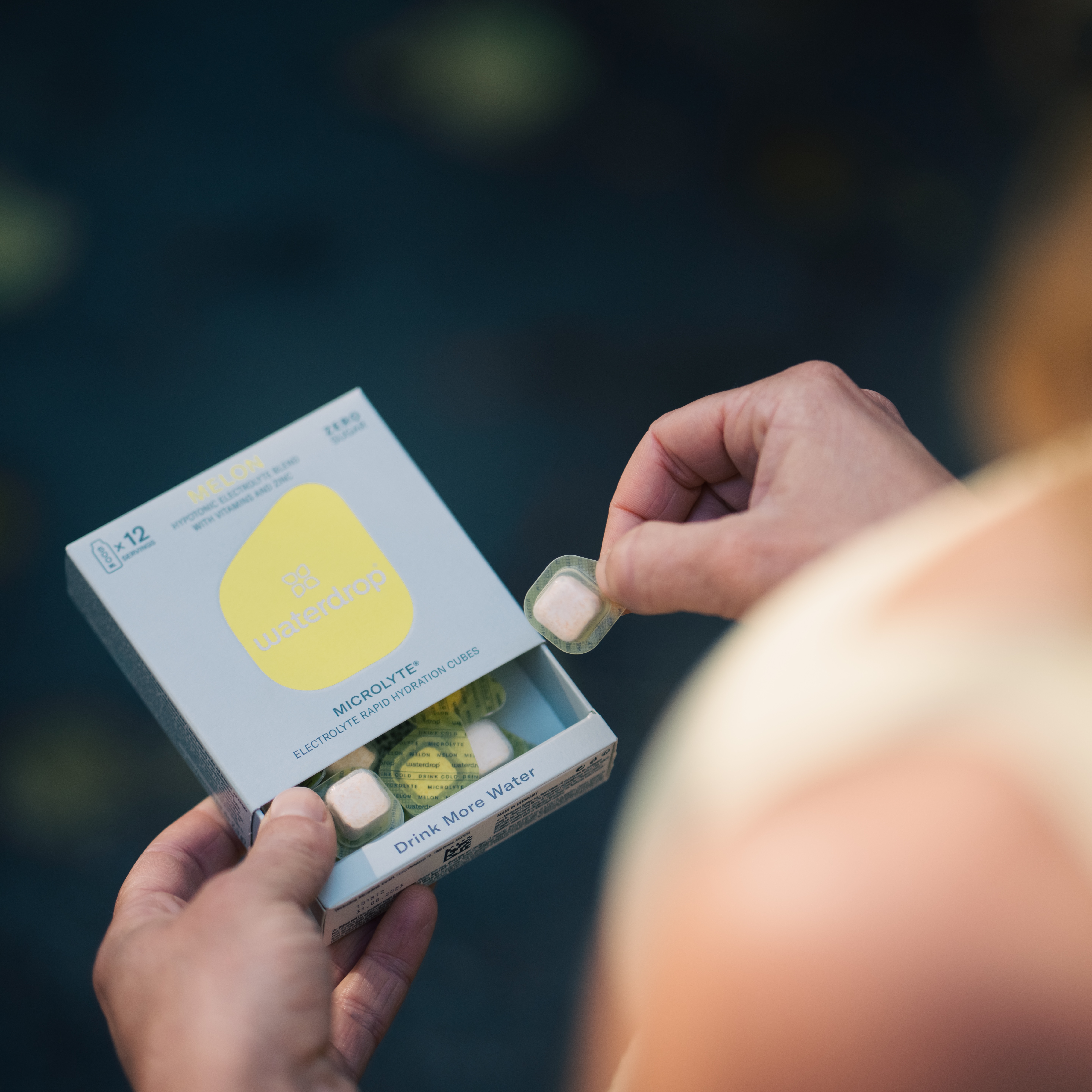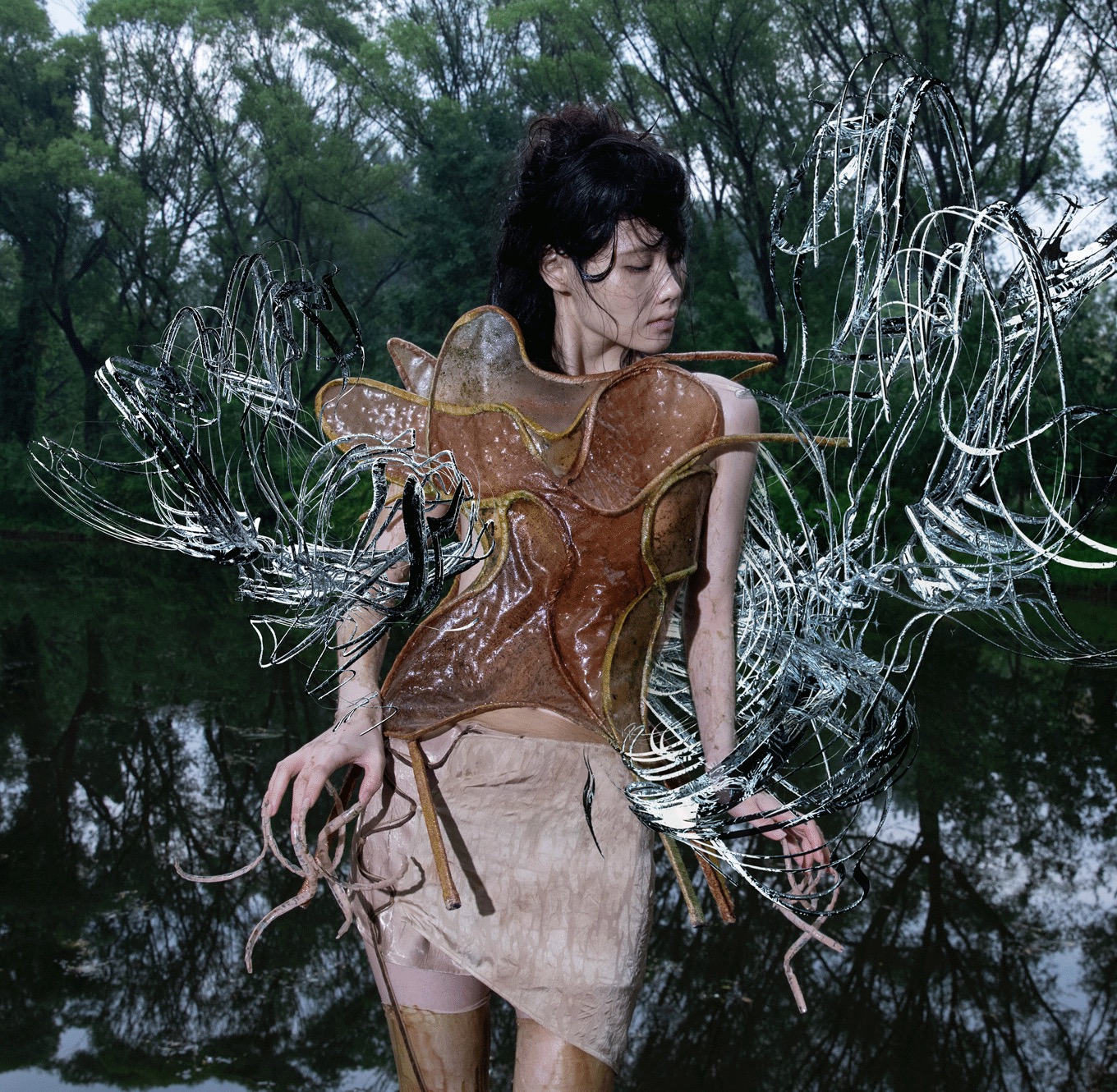18 : 11 : 22 : Weekly Debrief
This week: Designers tackle the climate crisis, Stormzy’s push for racial equality in football, plastic-free alternatives for hydration on-the-go, and a Martian vertical farm experience like no other.
1. Unseenbird’s Mars-themed café has its own vertical farm
Seoul – Sik Mul Sung is a café incorporating glass-front cultivation tanks where fresh produce can be grown and harvested, before being served to customers via conveyor belts. Launched by agritech start-up N Thing, which operates a vertical farm on the edge of the city, the space brings the company’s efforts to life for customers in an experiential and tangible way.
Designed by South Korean studio Unseenbird, the café’s sleek futuristic interior features sheets of stainless steel throughout, contrasting with red rocks referencing the company’s ambitions to take vertical farming to Mars.
The concept allows customers to witness at first hand the processes involved in operating a vertical farm, from seeing the vegetables being grown (without soil or sunlight) to cooking and eating, all in one place, while the ultra-modern setting helps to cement the image of this future-facing food tech solution. ‘Customers can feel the values and dreams of the company together by experiencing cultivation, harvesting, processing and consumption here,’ says Unseenbird.
We continue to track the evolution of new urban farms as companies find new ways to develop the relationship between consumers and fresh produce.
2. Waterdrop introduces dissolvable electrolyte hydration cubes
Austria – Beverage tech brand Waterdrop has launched an innovative hydration product involving solid cubes that turn water into a sugar- and caffeine-free electrolyte replenisher.
The ‘microdrink’ hydration-boosting cubes are formulated to support endurance and recovery, but mainly to inspire people to drink more water. The formulation is enriched with a functional blend of five hydration-boosting electrolytes, nine vitamins and natural fruit flavourings using pure extracts and high-quality ingredients without flavour enhancers or preservatives.
Besides the health-supporting benefits, Waterdop’s ‘small cubes with big impact’ are an environmentally friendly alternative to bottled or canned sports and hydration drinks. Waterdrop estimates that the product uses 98% less plastic and emits 98% less CO2 for transport compared to a conventional bottled energy drink.
At LS:N Global, we have been monitoring the Alternative Energy Drinks market, namely the growing focus on healthier properties, updated branding and natural ingredients. Waterdrop’s dissolvable drink indicates that we can expect to see new innovative formats in the sector, enhancing the ease of use and requiring less packaging.
 Microlytes by Waterdrop, Austria
Microlytes by Waterdrop, Austria
3. Stormzy and Adidas team up to promote diversity in football
UK – German athletics brand Adidas and British rapper Stormzy are launching #Merky FC, a programme to grant access to mentoring and off-pitch football (soccer) career opportunities for young people in the UK who identify as Black or mixed Black heritage.
Starting in January 2023, the programme will provide participating youth with paid work placements in 10 partner companies in the football industry, including Manchester United, Sky Sports and LADBible. This comes as recent research commissioned by Adidas revealed that while football may seem inclusive when looking at players – 39% of Premier League players identify as Black – diversity is lacking off the pitch.
‘Just 6.7% of senior roles in football are taken by someone who identifies as Black or mixed Black heritage. We barely see any Black team managers, coaches, sports presenters – the list goes on, nor are many of us even aware of the vast roles available within the football industry,’ explains Stormzy.
Where some football clubs already act as Civic Brands, the #Merky FC initiative aims to inspire deeper change and support racial equality across the industry.
 The Soil Project by Yuhan Bai, The Netherlands
The Soil Project by Yuhan Bai, The Netherlands
4. The Soil Project collection highlights soil-based leather alternative
The Netherlands – Designed by Royal College of Art student Yuhan Bai, the Soil Project clothing collection features naturally dyed vintage garments paired with a newly developed soil-based leather alternative.
Presented at Dutch Design Week 2022, the innovative textile mimics the look and feel of animal leather and is highly flexible like silicone. But it is manufactured using simple, cheap and natural ingredients only. Bai experimented with soil until she came up with a proprietary mix of soil, gelatin, agar, starch, glycerin, gluten and water, which is boiled and poured into a thin mould to achieve the sleek, leather-like finish of the material. ‘The method of making this kind of material is similar to cooking food; many of its formulas and composition are derived from food and the nature of the goods,’ says Bai about her process.
Consumers are increasingly scrutinising the plant-based leather alternatives that fashion brands are using, wary of PVC-based, fragile or costly options. As such, more designers are introducing lines using biomaterials like Bai’s soil leather, which stands out with its energy-efficient and natural transformation process.
5. Stat: How advertising is adding to Britons' carbon footprint
UK – Advertising climate network Purpose Disruptors’ latest report, published in the backdrop of COP27, looks at how adverts are adding to Britons’ carbon footprint.
The Temperature Check 2022 reveals the heavy environmental cost incurred by the advertising industry. The study quantifies ‘advertised emissions’, defined as emissions resulting from the increase in sales generated by advertising, and noted an 11% increase between 2019 and 2022.
Purpose Disruptors hopes that the findings will act as an incentive for the industry to renew its commitment to sustainability goals, both on the production side and in terms of the content of ads – and calls on advertisers to encourage mindful consumption over blind consumerism.
‘This year’s report makes it all the more important for advertisers to sit up and take notice. It’s very much business as usual at the moment, and rather than being on track for the 50% reduction we need by 2030, advertised emissions are at record highs,’ says Dr Grace Kite, economist and founder of Magic Numbers.
Where governments are failing to enact change, industry insiders – like designers tackling the climate crisis – can take the lead and act as change-makers.
To future-proof your world, visit The Future Laboratory's forecasting platform LS:N Global for daily news, opinions, trends, sector specific insights, and strategic toolkits.
Want to read more?
Become a member today!
Sign up to one of our trends intelligence platform, LS:N Global and get unlimited access to a hive of insights - from microtrends and macro trends to market reports, daily news, research across eight industry sectors and much more.
Discover our memberships
Already a member? Click here to login
